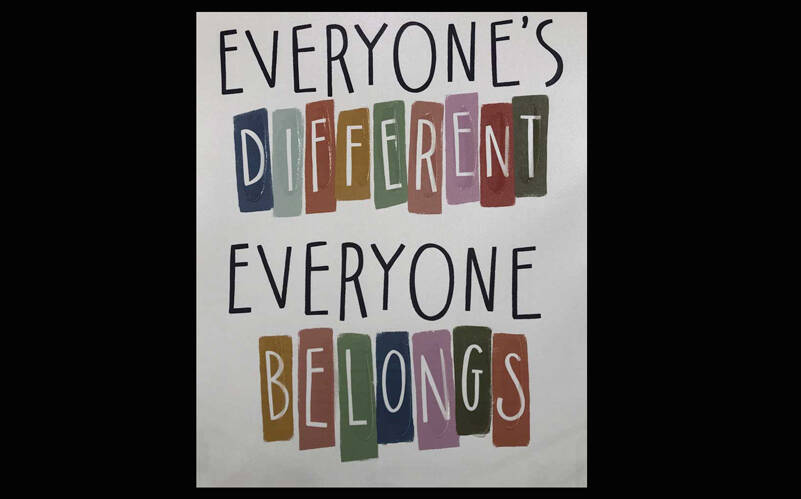By Morf Morford, Tacoma Daily Index
The most glaring and intrusive, and perhaps even the most intractable characteristic of our entire culture and society is our ever more hardening sense of borders of political and cultural polarity.
This divisiveness is reflected in the TV or movies we watch, the sports we watch or participate in, where many of us live, what we eat and almost every headline and personal conversation.
The list of topics, and often the words we use, that might offend or cause a person or book to be banned seems to grow by the day.
The Supreme Court – and a continuing parade of political campaigns – display their philosophic ideologies at the cost of consistent policy or even basic beliefs and values.
You may have seen some of the recent statistics on how Americans are literally losing their religion. But that doesn’t mean that most of us don’t believe in anything.
Our political landscape is one where the vast majority of us can’t clearly define what we believe or value, but many of us are very clear (at least for the moment) about what we oppose.
Like teenagers chasing the latest fad, some of us pursue the most glittering and irresistible conspiracy and obsession – at least for a month or so.
Anything from Critical Race Theory to transgender fears, stories, and sometimes legislation, develop wrapped around ultimatums and threats to “everything we believe in” (as many partisans put it).
We, as a nation and as a culture, have survived many threats and challenges. We tend to do better facing actual challenges – like wars or economic depressions – perhaps because those challenges force us to unite and work together to face them. Ideological, or even fictional, challenges are more difficult – and tend to divide us and drive us to attack and distrust each other.
Whither the Highest Court?
If there is any institution that should be above, and immune from, these ideological divides it is the US Supreme Court. But as with every other category of life, “that was then…”.
Besides a series of recent disclosures of, at best, questionable, ethical lapses on the part of a couple Supreme Court Justices, several decisions have been controversial.
The common theme of several decisions, from the revocation of Roe v Wade, to the negation of Affirmative Action to forgiveness of student loans was that they were not really decisions – they were reversals of previous decisions. Whether you support or oppose any of these decisions, I think that we would all agree that, above all, they are purely, even specifically, ideological. And, of course, from an institution that has, for a couple centuries, been framed and respected for its objective, and deliberately non-ideological status.
The revocation of Affirmative Action is a case in point. Affirmative Action addressed racial and ethnic college admission policies – but not the long term “legacy” admissions preferences.
In other words, when it comes to college admissions, (and housing and employment in a plethora of other cases) privilege is always and only available to those who have always had it.
You could argue that this framework of legal arguments is not “ideological” – except that this is a working definition of ideology – literally legislating preference for some and exclusion for others.
I think we all believe that opportunity in every area should be available to all.
Simple, but not easy
I have a simple, though perhaps not easy, solution; what if our laws and policies were developed and enacted by those directly and personally affected by them?
We perhaps achieved a peak of absurdity with the room full of men working on policies regarding women’s health. But there is nothing new about this. Almost exactly a century ago, men across America voted on whether women should have the right to vote.
We have white people dictating what Black people can do (or whether they can have basic rights – for voting and employment, among other things), middle-aged men deciding what young women can do with their bodies or judges who have never known student debt (and few if any members of their family ever will) make life-impacting decisions about others who are struggling and making sacrifices to improve their career prospects. And of course, those who have no experience with the LGTBQ+ community making (often punitive) laws restricting behavior, actions and relationships.
It would be easy to make the argument that we have a record low in terms of respect for our institutions of authority. From the Supreme Court to local police departments, to local politicians and public school teachers, and much more, near-reflexive trust and respect has been lost.
Cynicism and distrust, across the political spectrum, has become the default set-point for most of us. Too many of us have come to assume that our leaders are self-serving, out of touch opportunists – and many, from Supreme Court justices to sports coaches, seem determined to confirm our worst suspicions.
The solution is (relatively) easy; have at least one person from the directly impacted demographic participate in the decision-making process. Women, especially young women, should be on (or even leading) committees on women’s health.
Someone with experience with student loans should, at minimum, act as an advisor to those addressing financial aid options for college-bound students.
If we could do this, our laws would reflect the needs and protect the rights of almost all of us. And our laws and policies, being fair and rooted in experience, would be respected and would endure – and, presumably, be free of ideological manipulation.
Who knows? We just might see what Abraham Lincoln saw when he said that we might have “a new birth of freedom and that government of the people, by the people, for the people shall not perish from the earth”.





